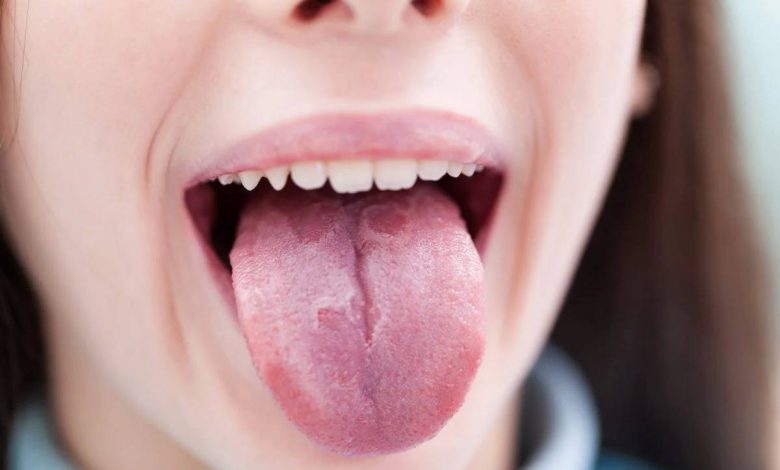Dry mouth, xerostomia: what is this, causes, symptoms, diagnostics, treatment, prevention

Dry mouth; Xerostomia; Dry mouth syndrome; Cotton mouth syndrome; Cotton mouth; Hyposalivation; Oral dryness
Dry mouth, also known as xerostomia, represents a state, in which there is not enough saliva in the mouth. Saliva is essential for maintaining good oral health., because it helps to clean the mouth, neutralize acids and prevent cavities. When saliva is not enough, Mouth may become dry and uncomfortable.
Causes of dry mouth
There are several possible causes of dry mouth., including:
- Medicines. Dry mouth is a common side effect of many medications., including antihistamines, decongestants, antidepressants, diuretics and painkillers.
- Medical conditions. Dry mouth can be caused by some medical conditions, such as Sjögren's syndrome, diabetes and Parkinson's disease.
- Radiation therapy. Radiation therapy to the head and neck can damage the salivary glands, which will lead to dry mouth.
- Chemotherapy. Chemotherapy drugs can also affect the salivary glands and cause dry mouth..
- Nerve Damage. Nerve Damage, controlling salivary glands, can lead to dry mouth.
- Dehydration. Not drinking enough water can cause dry mouth.
You may also experience dry mouth, if you feel stressed, anxiety or dehydration.
Dry mouth is common in older people. But aging itself doesn't cause dry mouth.. Elderly people, usually, have more health problems and take more medication, which increases the risk of dry mouth.
Dry mouth symptoms
Dry mouth symptoms may include:
- Feeling dry, stickiness in the mouth.
- Difficulty swallowing, speech or chewing.
- Burning sensation in the mouth.
- Chapped lips and corners of the mouth.
- Bad breath.
- Changes in taste.
- Dry throat or hoarseness.
When to contact a healthcare professional:
If you are experiencing any of the above symptoms, it is important to contact a healthcare professional. Untreated Dry Mouth, it can lead to caries, gum disease and other oral health problems. It can also affect your quality of life., making it difficult to eat, conversation and comfortable sleep.
Questions, that your doctor may ask
When you visit a health worker, he may ask you a series of questions, to help diagnose the cause of your dry mouth. Some questions, that your doctor may ask, include:
- When did you first notice dry mouth??
- Have you recently started taking any new medications?
- You have undergone radiation therapy or chemotherapy?
- Do you have any comorbidities?
- You smoke or drink alcohol?
- Are you drinking enough water??
- You snore or have sleep apnea?
Diagnosis of dry mouth
To diagnose dry mouth, a health worker will review your medical history and perform a physical examination. Your doctor may prescribe:
- Blood tests
- Imaging scans of your salivary gland
- Saliva collection test to measure saliva production in the mouth
- Other Tests, needed to diagnose the cause of dry mouth
Dry mouth treatment
Dry mouth treatment will depend on the underlying cause. If the medicine causes dry mouth, your doctor may adjust your dosage or switch to a different medication. If your dry mouth is caused by an underlying medical condition, the doctor will prescribe treatment for this condition.
In some cases, the doctor may prescribe medication, stimulating saliva production. These drugs include pilocarpine and cevimeline. Saliva substitutes, otpuskaemыe without prescription, and mouth moisturizers can also help.
Home treatment for dry mouth
In addition to drug treatment, there are several things, which you can make at home, to relieve the symptoms of dry mouth. These include:
- Drinking water throughout the day.
- Chewing sugar-free gum or sugar-free hard candies, to stimulate saliva production.
- Give up caffeine, tobacco and alcohol.
- Using a humidifier at night.
- Brushing your teeth and flossing
- Using mouthwash, designed to relieve dry mouth, eg Biotene or Act.
- Wet, soft food, which is easier to swallow.
- Avoid acidic or spicy foods, which can irritate the mouth.
- Use a lip balm, to prevent dry and chapped lips.
Prevention of dry mouth
There are several ways to prevent dry mouth.. These include:
- Drinking plenty of water throughout the day.
- Chewing sugar-free gum or sugar-free hard candies, to stimulate saliva production.
- Give up caffeine, tobacco and alcohol.
- Regular brushing and flossing, to maintain oral health.
- Using a Humidifier in a Dry Environment.
- Using mouthwash, designed to relieve dry mouth.
- Visiting the dentist for regular checkups and cleanings.
Conclusion
Dry mouth is a common condition, which can cause discomfort and lead to oral health problems. It may be caused by medications, Diseases, radiation therapy, chemotherapy, nerve damage or dehydration. If you experience any symptoms of dry mouth, it is important to contact a healthcare professional for evaluation. Treatment options include adjusting drug dosages, treatment of underlying diseases and the use of drugs to stimulate saliva production. Home remedies include drinking plenty of water, chewing sugar-free gum and avoiding caffeine, tobacco and alcohol. Following these methods of prevention and treatment, you can reduce your risk of developing dry mouth and keep your mouth healthy.
Used sources and literature
Elluru RG. Physiology of the salivary glands. In: Flint PW, Francis HW, Haughey BH, et al, eds. Cummings Otolaryngology: Head & Neck Surgery. 7th ed. Philadelphia, PA: Elsevier; 2021:chap 81.
National Institute of Dental and Craniofacial Research website. Dry mouth. www.nidcr.nih.gov/health-info/dry-mouth/more-info. Updated July 2018. Accessed August 24, 2021.
Pham KL, Mirowski GW. Oral diseases and oral manifestations of gastrointestinal and liver diseases. In: Feldman M, Friedman LS, Brandt LJ, eds. Schlesinger & Fordtran’s Gastrointestinal and Liver Disease. 11th ed. Philadelphia, PA: Elsevier; 2021:chap 24.
Popovtzer A, Eisbruch A. Radiotherapy for head and neck cancer: radiation physics, radiobiology, and clinical principles. In: Flint PW, Francis HW, Haughey BH, et al, eds. Cummings Otolaryngology: Head & Neck Surgery. 7th ed. Philadelphia, PA: Elsevier; 2021:chap 75.
Simon L., Silk H. Diseases of the mouth. In: Kellerman RD, Rakel DP, eds. Conn’s Current Therapy 2021. Philadelphia, PA: Elsevier 2021:chap 1029-1034.
